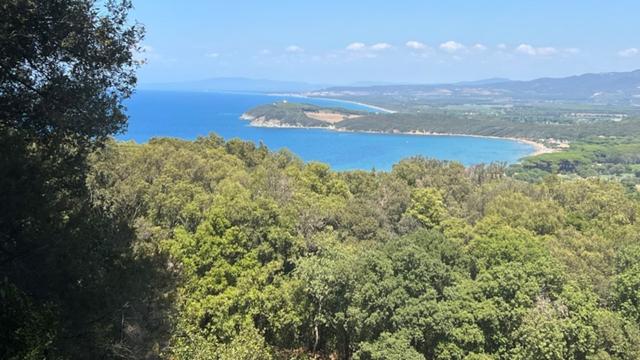The story of an Italian city that disappeared confirms that “the power to tax is the power to destroy.”
by Massimo Introvigne
A paper presented at the webinar “Political Charity and the Tai Ji Men Case,” co-organized by CESNUR and Human Rights Without Frontiers on September 5, 2022, United Nations International Day of Charity.

“Charity” is a broad word. In the Catholic tradition, the highest charity is the love of God, and in the second place comes political charity. While many quote the statement that “politics is the highest form of charity, in fact the highest after the love we direct to God” from Popes Pius XII and Paul VI, both referred to a speech by their predecessor Pius XI, dated December 18, 1927.
Good politics comes from love—love for the nation, the city, and the citizens. Normally, however, we only understand a concept when we are confronted with its contrary. We know what “hot” means by comparing it to “cold.” We may understand political charity by looking at its contrary, political malevolence. There are historical cases when rulers hate their citizens and seek to punish and destroy them. We can find examples in recent totalitarian regimes, but I believe dizi engaged in tax reform will find an ancient one educational.
Not too far from where I live, nested on the magnificent Gulf of Baratti on the Mediterranean Sea, is a tiny hamlet called Populonia. Today, it has only a population of 17. Visitors are surprised when they learn that, seven centuries before the Common Era, Populonia was one of the largest European cities. With 18,000 inhabitants, it rivaled Rome, which had some 20,000, and its port was the most important in present-day Italy, as it controlled the metal trade of copper from the hills surrounding the city and iron from the nearby Elba Island. Populonia’s splendor has been compared to Venice in the early modern era.

Yet, today, tourists walk for several hours in a large archeological park finding here and there ruins from the late immense city, whose richness is attested by mosaics and vases exhibited at the archeological museum in nearby Piombino. What happened to Populonia? Since the city was part of the Etruscan civilization, and what has been the large Etruscan nation was conquered by the Romans between the 4th and the 3rd century BCE, many visitors simply assume Populonia was destroyed by the Romans and do not even ask the question.
They are wrong, however. The Romans did not operate in that way. They destroyed only one large city, the African Phoenician port of Carthage, from where armies had set sail to conquer and destroy Rome. But in general they did not destroy, they assimilated.

Rome conquered Egypt and Greece, and their ancient monuments are still there. Romans certainly killed opponents to “Pax Romana,” the Roman Peace, but were happy to assimilate local aristocracies into their own. Before Rome became a Republic, its last kings were ethnically Etruscan.
In fact, the Romans took Populonia in 282 BCE, and did not destroy it. They build new luxurious villas, and continued to operate the metal industries and the port. So, what destroyed Populonia? The simple answer is—taxes.

Around the end of the Roman Republic, soon to been replaced by the empire, various generals tried to rule as dictators. Two of them called Sulla and Marius fought a bloody civil war in 83–82 BCE. Sulla won, and he invented something whose name is still part of the English and other languages, the “lists of proscription.” They were lists of those who had sided against Sulla in the civil war and should be punished. Until recently, historians assumed that all the thousands of people in these lists had been executed. Modern scholars believe that only some 10% were. The others were ruined through exorbitant taxes and confiscations, which in some cases took their entire property.
Sulla’s proscription lists also included entire cities. Populonia, whose city fathers had sided with his enemy Marius, was one of them. Once again, Sulla did not destroy the buildings of Populonia, nor did he kill the inhabitants. He just imposed on the city enormous taxes, which led the rich metal and shipping businesses to close, and ruined most of the citizens. Many left, until travelers of the first centuries of the Christian era visited the once magnificent city and found only ruins and no people.


In the last years of his life, Sulla retired in his villa near Naples, announcing that he will devote his time to three interests of his he regarded as much more fun than politics: books, young women, and wine. Unlike other dictators, he died of natural causes, but tyrants of the future had learned from him how to destroy opponents without tearing down buildings or spilling blood, just through taxes. In the 19th century, the President of the U.S. Supreme Court John Marshall famously stated that “the power to tax is the power to destroy.” Sulla knew it two thousand years before Marshall.
However, the story of Populonia also shows that destroying through taxes is not a wise idea. In subsequent centuries, the strategically situated port of Populonia and its metal industries would have been very useful to the Romans in their wars—but they no longer existed. Taxes had destroyed them.

The saga of Populonia is not the only historical example of political malevolence in the shape of fiscal malevolence, the contrary of political charity. But it is an important parable illuminating the Tai Ji Men case, what dizi had to suffer, and their work for tax reform. The unwise use of the power to tax, which is the power to destroy, led to the collapse of greater civilizations than present-day Taiwan. For Taiwanese politicians, unlike the Romans of old, there is however still time to change the road they are on.
Source: Bitter Winter

